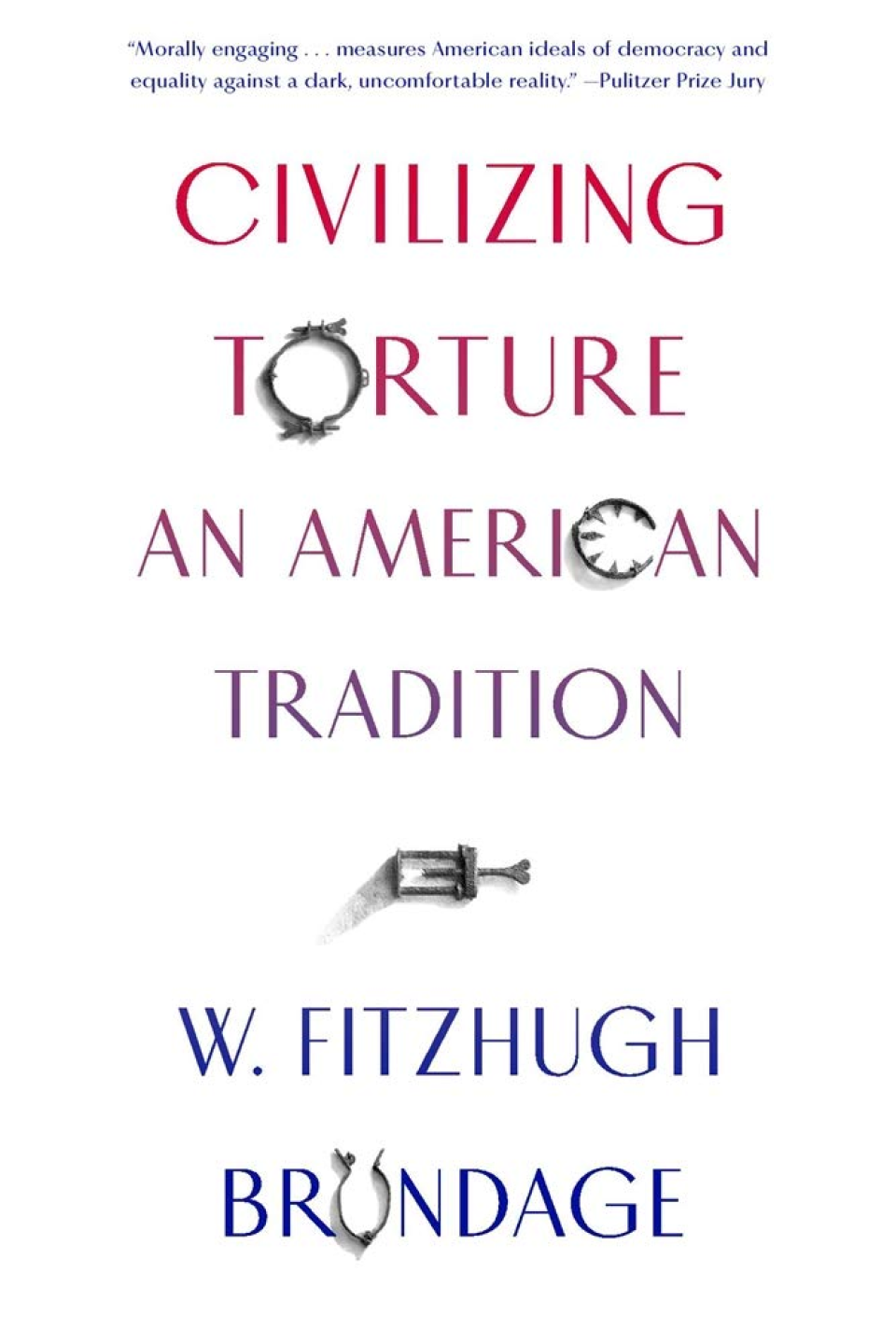Amazon link
William Fitzhugh Brundage is an American historian, and William Umstead Distinguished Professor, at University of North Carolina. His works focus on white and black historical memory in the American South since the Civil War. He in his book, Civilizing Torture: An American Tradition, provides in a timely overview of America's enduring and fraught relationship with the ancient practice of physically harming prisoners. Although the American colonies prided themselves on leaving behind the barbaric corporal punishments that were common in the Old World, torture survived in various forms, under different names, and with an array of strained justifications. It flourished on the frontier, where one of the more fruitful sources of cultural exchange between European settlers and Native Americans was novel methods of torture, which both societies practiced with aplomb.
Despite the Enlightenment values enshrined in the Eighth Amendment, torture persisted through the American republic's early experiments with penitentiaries, where guards used floggings and simulated drowning—we call it waterboarding today, but back then it was known as "the water cure"—to break recalcitrant inmates. Brundage traces the use of torture through slavery, the Civil War's brutal P.O.W. camps, the U.S. military campaign in the Philippines, all the way to the "enhanced interrogations" of the global war on terror. The book details the recurring ways the reality was justified and minimized to avoid admitting that America wasn't living up to its ideals.

Related News





Hot Categories
Popular News
Be Aware
Subscribe To Our Newsletter
Don’t worry, we don’t spam











